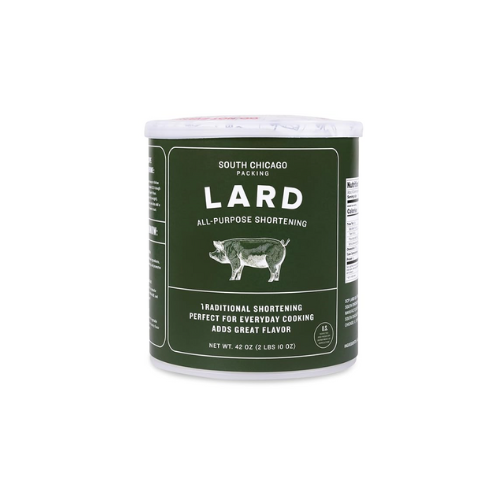Kombucha on Carnivore Diet
Compatibility and Considerations
Kombucha, a fermented tea, has surged in popularity due to its purported health benefits, including digestive support and nutrient content. Characteristically tangy and slightly fizzy, it’s made by fermenting sweetened tea with a culture of yeast and bacteria. Though commonly consumed for its health claims, those following specialized diets may question its compatibility with their food choices.
The carnivore diet is one such specialized diet, focusing primarily on animal products and excluding plant-based foods. As its adherents consume mainly animal meats, organs, eggs, and certain dairy products, the inclusion of beverages like kombucha, which is plant-based, raises questions. The core tenet of the carnivore diet is to eat foods derived from animal sources while avoiding those derived from plants, which includes the tea and sugar used to make kombucha.
Adopting a carnivore dietary pattern marks a significant departure from standard diets that include a variety of plant and animal foods, and with this change comes scrutiny of all potential food items, including drinks. While some carnivore diet resources may list kombucha as optional, others advise against it due to its plant origins and sugar content. The choice to include kombucha in a carnivore diet can depend on an individual's dietary purism level and personal health goals.
Understanding the Carnivore Diet
The Carnivore Diet focuses on consuming animal products and eliminating plant-based foods, aiming for improved health outcomes through a high intake of protein and animal fats.
Defining Carnivore Diet
The Carnivore Diet is an elimination diet that restricts the consumption to primarily animal products. It excludes most carbohydrate sources like fruits and vegetables and strongly emphasizes meat consumption, leaning on the idea that humans can thrive on a diet similar to that of their ancestors.
Benefits of Carnivore Diet
Adherents of the Carnivore Diet often report health benefits such as weight loss, improved digestion, and reduction of inflammation. It's suggested that the diet's high protein and fat content may contribute to satiety and consequently, a lower calorie intake.
Foods Included in Carnivore Diet
Foods consumed on the Carnivore Diet are exclusively from animal sources:
Red meat: beef, lamb, pork
Poultry: chicken, turkey, duck
Seafood: fish, shrimp, other shellfish
Eggs: chicken, duck, quail
Dairy products: milk, cheese, butter (strict carnivore variation may exclude these)
Animal fats: tallow, lard
Water and sometimes coffee or tea without sugar or plant-based additives can be included.
When it comes to getting the best deals, buying tallow or lard online is the way to go!
Carnivore Diet Variations
Two primary variations exist within the Carnivore Diet:
Strict Carnivore: Only meat, animal fats, and water are consumed.
Relaxed Carnivore: Includes some dairy products like cheese and yogurt, and allows for limited consumption of coffee, tea, and spices.
Each variation aims to reduce carbohydrate intake and to focus on high-quality animal proteins and fats.
Kombucha Fundamentals
Kombucha is a fermented tea known for its distinctive taste and purported health benefits. Understanding its fundamentals can illuminate why it has gained popularity as a beverage choice.
What is Kombucha?
Kombucha is a fermented beverage produced from sweetened tea and a culture of yeast and bacteria. It is characterized by its mildly fizzy nature and a tangy taste that can vary depending on the fermentation time. A key component in kombucha production is the symbiotic colony of bacteria and yeast, commonly referred to as a SCOBY. This culture facilitates the fermentation process, which not only alters the taste but also creates probiotics that are beneficial for gut health.
Benefits of Kombucha
Kombucha is consumed by many for its health benefits, particularly for its potential to support gut health due to the presence of probiotics. These beneficial bacteria are thought to help in maintaining a healthy balance of gut flora. Additionally, kombucha can contain antioxidants, which protect the body from oxidative stress and may reduce the risk of several diseases. It is important to note that the exact benefits can vary, and some claims may be supported by more empirical evidence than others.
Making of Kombucha
The production of kombucha involves a specific fermentation process.
Brewing of the base tea, usually black or green, which contains caffeine.
Addition of sugar, which serves as food for the SCOBY.
The mixture is then left to ferment at room temperature for a period, typically a week or more.
During this time, the SCOBY digests the sugar, producing various organic acids, probiotics, and trace levels of alcohol as byproducts.
This fermentation process is crucial for kombucha’s unique profile and effects.
Kombucha Ingredients
The primary ingredients in kombucha are:
Tea: The type of tea used, such as black or green, will influence the levels of caffeine and antioxidants in the beverage.
Sugar: Essential for the fermentation process. It is mostly consumed by the SCOBY, although some remain as added sugar in the final product.
SCOBY: The starter culture that consists of bacteria and yeast.
Drinking kombucha can expose one to the effects of these ingredients, including the caffeine in the tea and the residual sugars. While the fermented tea should be free of toxins when properly prepared, it's advisable to purchase it from reputable sources to avoid any health risks related to improper fermentation or contamination.
Kombucha on a Carnivore Diet
Exploring whether kombucha aligns with the carnivore diet principles reveals contrasting perspectives on its compatibility, benefits, and limitations.
Is Kombucha Carnivore-Friendly?
Kombucha is a fermented tea typically made from black or green tea leaves and sugar. The carnivore diet focuses exclusively on animal products, shunning plant-based foods and foods high in carbohydrates. Kombucha, being plant-based and containing sugars, doesn't fit the strict definition of a carnivore diet item. Animal products like meat, dairy, and some proponents include eggs, are central to this diet. Fruits, vegetables, and any other plant-derived foods are excluded.
Potential Benefits
Despite its plant-based origin, kombucha is sometimes considered for inclusion due to the probiotics produced during the fermentation process. These beneficial bacteria can support gut health. Some individuals on the carnivore diet may consider it for its digestive benefits, similar to other fermented foods like sauerkraut or kefir, although these are not standard components of the diet.
Considerations and Limitations
There are several considerations for those on the carnivore diet contemplating kombucha:
Sugar Content: Kombucha is made by fermenting tea with sugar; residual sugars may remain post-fermentation.
Carbohydrates: The carnivore diet eliminates carbohydrates, while kombucha typically contains them.
Dairy Products: While some dairy products are carnivore-compliant, kombucha is not a dairy product and thus doesn’t necessarily receive the same consideration.
Kombucha also introduces plant-derived compounds into the body, which the carnivore diet usually aims to eliminate, potentially impacting gut health. It's crucial for adherents to weigh these factors against their dietary goals.
Nutritional Concerns and Benefit
This section examines the nutrients present in kombucha and how they compare to the requirements of a carnivore diet, pinpointing where potential nutritional synergies or conflicts may arise.
Kombucha Nutritional Profile
Kombucha is known for its unique nutritional attributes, primarily probiotics, which support gut health. Probiotics are live microorganisms that, when consumed in adequate amounts, confer a health benefit on the host. During fermentation, kombucha becomes carbonated and rich in certain B vitamins, enzymes, and polyphenols—compounds found in plants that have antioxidant properties.
However, the sugar content in kombucha is a point of debate for carnivore dieters. The drink is brewed with sugars which are largely consumed by yeast during fermentation, although some residual sugars remain. Here's a simple breakdown of the nutritional content found in a standard serving of kombucha:
Calories: 30 kcal
Sugars: 2-6g
Probiotics: 1 billion CFUs (Colony-Forming Units)
Polyphenols: Varies, depending on the type of tea used
Carnivore Diet Nutritional Profile
The carnivore diet focuses on animal products like meats, eggs, organs, and dairy, which are rich in protein, fats, and essential nutrients like vitamin B12 and zinc. It excludes plant-based foods, and therefore is typically devoid of dietary fiber and certain vitamins and minerals such as vitamin C and magnesium.
Nutrients predominantly found in a carnivore diet can include:
Protein: High amounts, necessary for muscle growth and repair.
Fats: Sourced from animal products, they provide a dense energy source.
Vitamins and Minerals: A concentration of B vitamins, vitamin A, potassium, iron, and more, depending on the variety of animal products consumed.
Anti-nutrients: Practically none, since these are typically found in plant foods.
One could argue that since kombucha contains beneficial microorganisms and bioactive compounds, it may complement the carnivore diet by introducing probiotics, despite technically being a plant-based beverage. However, the sugars and potential introduction of plant-based compounds into the strictly animal-based diet are notable concerns that are often weighed by those considering its inclusion. It's also important to note that while traditional carnivore diets do not include kombucha, some modified versions may allow for more flexibility.
If you're looking for fiber supplement, vitamin C, and magnesium, buying it online is your best bet!
Health Considerations and Risks
When considering the incorporation of kombucha into a carnivore diet, one must weigh the potential health benefits against the risks. This balance includes understanding the interplay of kombucha's probiotics and the bioavailability of nutrients on an all-animal-product regimen.
Benefits of Diet Synergy
Probiotics: Kombucha contains living probiotics which may support gut health. This can be particularly useful in a carnivore diet that lacks plant-based fibers.
Nutrient Absorption: Some studies suggest that probiotics in kombucha could improve the body’s absorption of B vitamins and zinc, nutrients critical for energy and immune function.
Weight Management and Diabetes: Regular consumption of fermented foods like kombucha has been associated with weight loss. Also, a carnivore diet that is low in carbohydrates may contribute to blood sugar regulation, potentially benefiting individuals with diabetes or obesity.
Risks and Side Effects
Caffeine Content: Kombucha is made from tea that contains caffeine, which could affect individuals sensitive to this stimulant or those dealing with anxiety or sleep issues.
Arthritis and Autoimmune: Those with autoimmune conditions or arthritis might experience flare-ups due to certain compounds found in fermented foods.
Nutritional Deficiencies: Excluding all plant foods can lead to deficiencies in fiber and certain vitamins. Long-term adherence to such a restricted diet might also contribute to an increased risk for conditions such as heart disease.
Detoxification: Kombucha advocates often highlight its detoxifying effects, but the carnivore diet's exclusion of plant-based detoxifying agents could mean missing out on these complementary health benefits.
It is clear that each individual's experience may vary, and people should consult healthcare professionals when combining kombucha with a carnivore diet to tailor to their personal health needs.
Personalization and Self-Experimentation
Personalizing the carnivore diet and the inclusion of kombucha requires self-experimentation to understand how these adjustments affect individual health and well-being.
Adjusting the Carnivore Diet
The carnivore diet typically excludes plant foods, focusing on a diet of meat, organs, and sometimes dairy products like raw milk. Enthusiasts like Dr. Shawn Baker advocate for a "nose to tail" approach, while others might allow for a low-carb option like avocado. Adjustments can be made for personal tolerance and goals, with some individuals considering small quantities of herbs and spices to enhance flavor without significant carb increase.
Incorporating Kombucha
Kombucha is a fermented tea known for its potential health benefits, including probiotic content and a source of electrolytes. However, it is essentially a plant-based beverage containing sugar, which is used during its fermentation process. Those on a carnivore diet may choose to include kombucha to aid digestion or support gut health, as the sugar is largely consumed by beneficial bacteria, potentially lowering the risk of candida overgrowth.
Monitoring Health Changes
Individuals incorporating kombucha into a carnivore diet should monitor changes thoroughly. Health metrics to watch include:
Blood Sugar Levels: to ensure they remain stable, considering the sugar content in kombucha.
Digestive Health: observing any improvements or adverse effects kombucha may have.
Regular self-monitoring could involve:
Tracking Food Intake: using a diary or app.
Regular Blood Tests: to observe any changes in blood markers.
Comparing Hydration Options: like kombucha versus sparkling water, to evaluate their effects on hydration and electrolyte balance.












